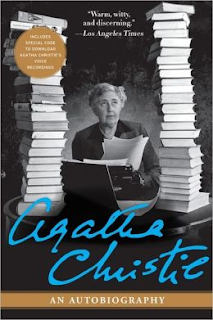The 100 Best
African American Poems
Nikki Giovanni (Ed.)
Category: Poetry;
African-American
Synopsis: An
anthology of the best 100 African American poems, as edited by Nikki Giovanni.
Date finished: 4
September 2013
Rating: ***½
Comments:
First, I must admit I am not the best person for reviewing
this book. My knowledge of African-American poetry is by no means extensive. By
no means.
That said, I have some opinions.
As I see it, there are two things you can comment on when
reviewing an anthology of poetry. One is how well the subject (or era, etc.) of
the anthology was represented. The second is how well the anthology resonates
with you as a reader.
An anthology exposes the prejudices of the editor compiling
it, for better or worse. Our editor, Nikki Giovanni, came of age during the
Civil Rights and Black Power movements. She has used her poetry and notoriety
to speak out on these issues. You do not need to know that to read this
collection, as it will become evident by the poems chosen. They lean heavily
toward these issues. In her introduction, she talks about including poems by
poets from her mother’s generation—Robert Hayden, for one—as almost an apology.
(Or maybe I’m oversensitive. I believe
Those Winter Sundays is one of the most wonderful poems in the English language.)
We do see the usual suspects here:
Theme for English B,
The Negro Speaks of Rivers, and
Harlem by Langston Hughes
We Real Cool by Gwendolyn Brooks
Homage to My Hips by Lucille
Clifton
These usual suspects are familiar and welcoming. And there
is a nice mix of generations here. There were a few poets that I felt were
underrepresented. I was surprised by the omission of Maya Angelou and the near
omission of Rita Dove (Poet Laureate, 1993-1995), for instance.
And I have to tell you I was quite irked about the inclusion
of no less than six poems by Giovanni. Six! Now, I realize there was a
selection committee, but still, I would have limited my own presence in the 100
BEST to ONE of my own poems. Apparently, Ms. Giovanni is not a, shall we say,
humble, woman.
As for how well the anthology resonated, I judge poems like
I judge music, poem by poem, song by song. There are some gems here, there are
a lot of poems important for historical reasons (poems about Emmett Till and
the Freedom Riders—but Tupac Shakur, not so much, IMHO), and there are poems
that a white woman simply can’t relate to, no matter how hard I try. I don’t
think that’s a bad thing.
I did fell in love with a
poem by
Kwame Alexander. It was by far my favorite in the whole collection.
Overall, I’m glad I read this collection, but it didn’t live
up to my excitement over discovering it. I was hoping for more new-to-me poets
and less bashing of the right wing (I’m looking at you, Giovanni). It felt a
little too heavily slanted toward activism, which is a comment that just might
land me in know-nothing honky land, but so be it.
For the record, I read the Introduction three times and
still have no idea what Giovanni means when she says she “cheated.”
Would you recommend
this to a friend?
It’s a good collection for a class studying African-American
poetry. But to the average reader, probably not.
You might also enjoy:
Love Poems by Nikki Giovanni – this is, to my recollection,
the only book of her poetry that I’ve read, but the
poem “The Only True Lovers Are
Chefs or Happy Birthday Edna Lewis” burns
me down.
















